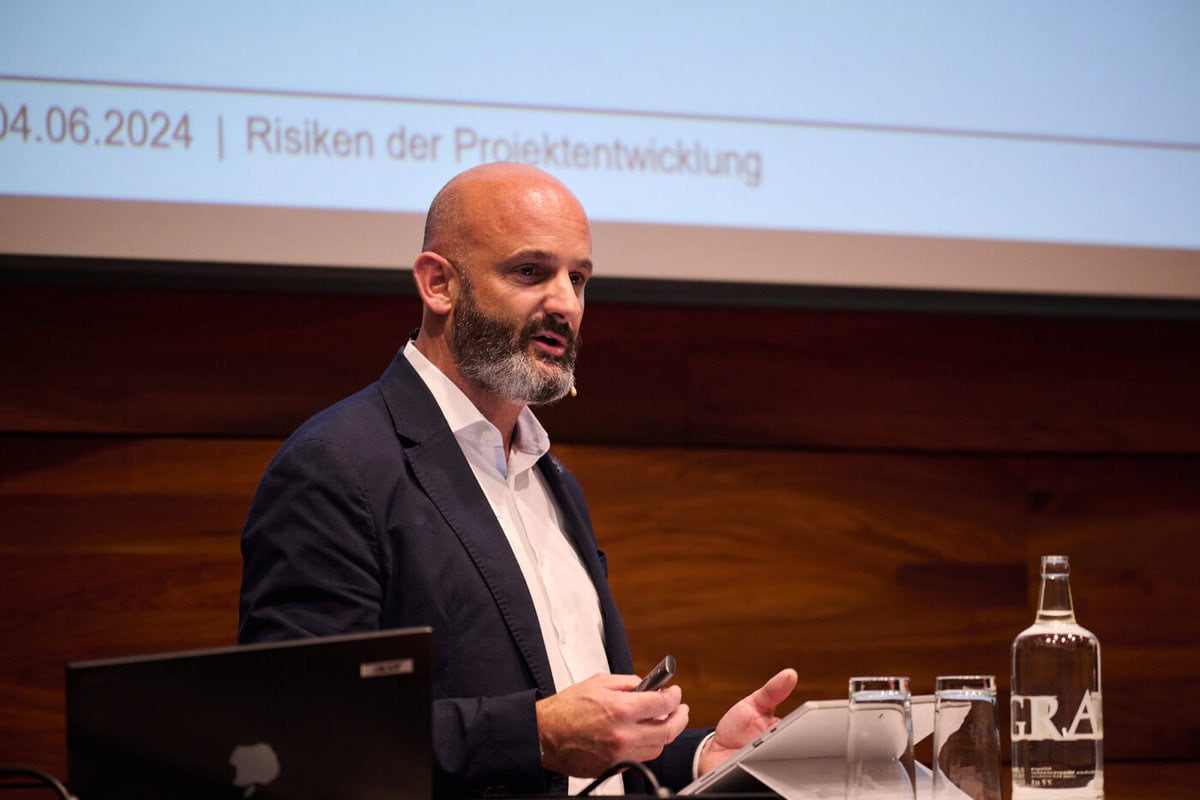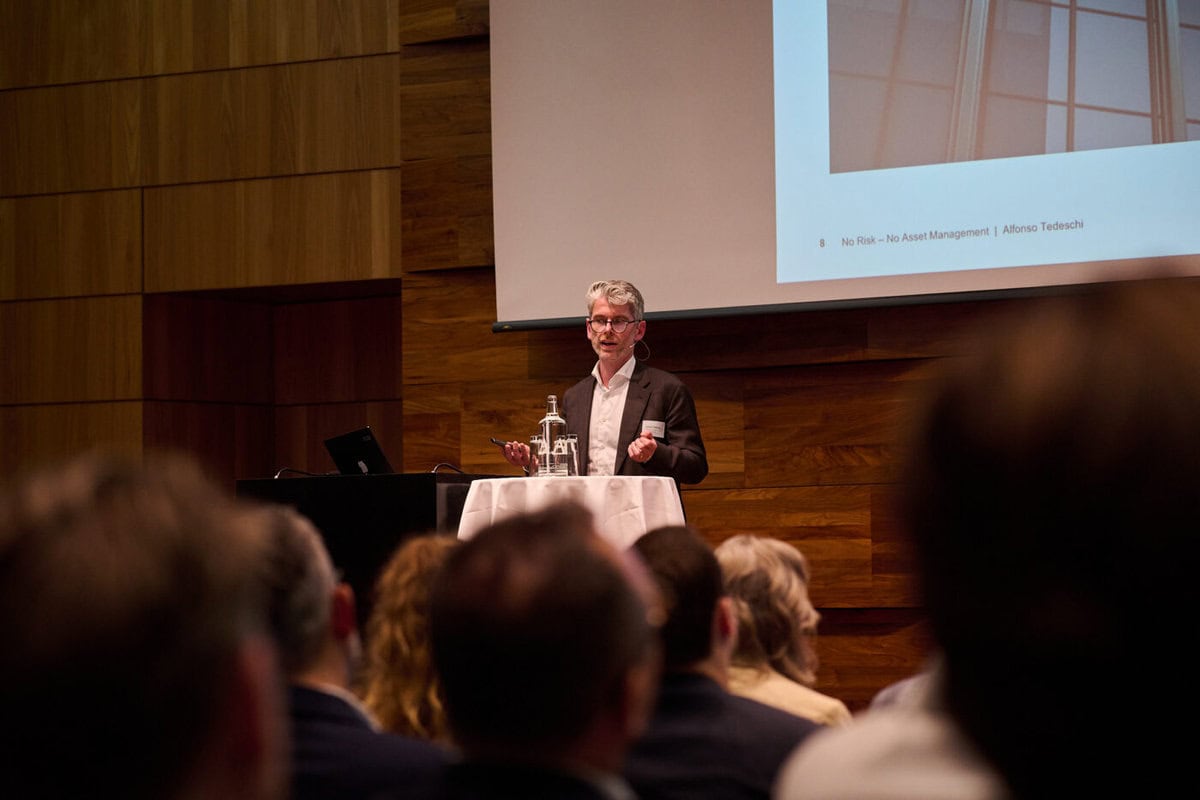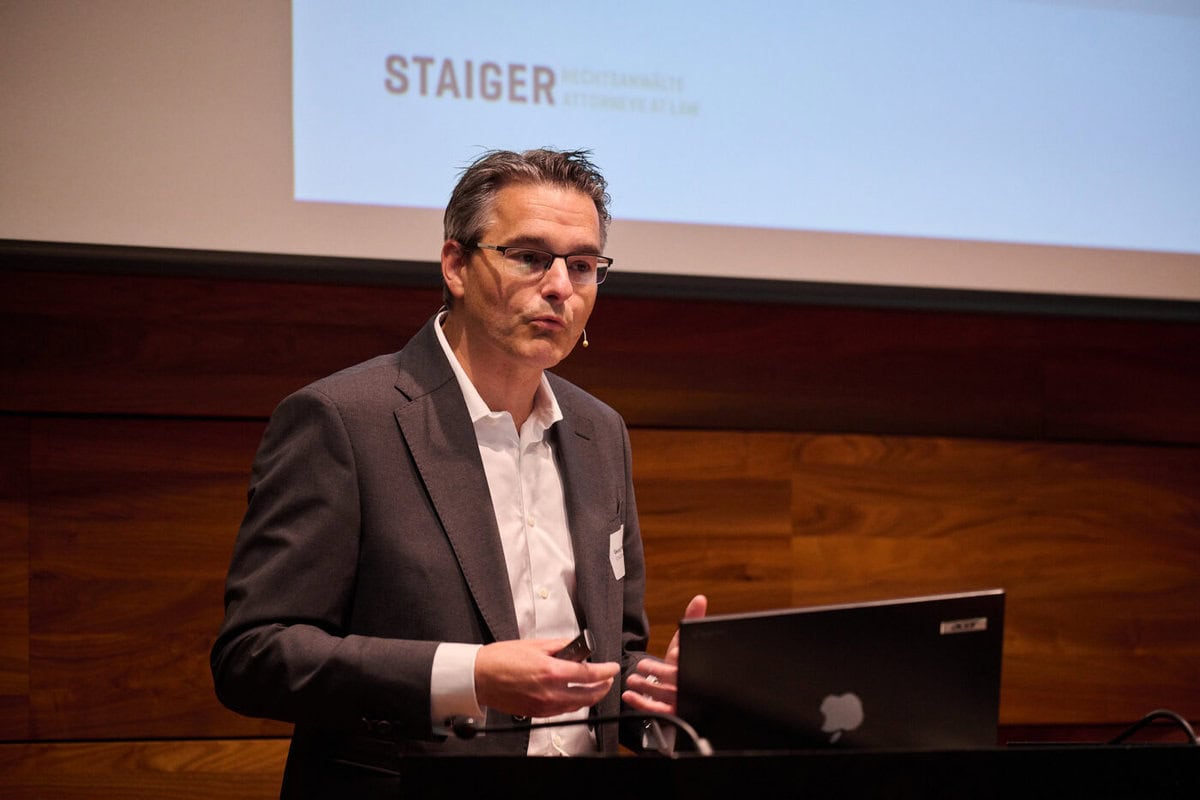Review of the 99th Swiss Real Estate Talk
The 99th edition of the Swiss Real Estate Talks series focused on "Risk management in difficult times". The title was well chosen, even if the subtitle threatened to steal the show. It read: "What we can learn from the Signa case".

What is certain is that the sea has become rougher and risk management more important. What is not quite so certain is what exactly can be learned from the Signa case - and for whom. For many players, the world of the illustrious Mr. Benko seems to be quite far removed from their own reality. At the recent real estate discussion in Zurich's "Metropol", however, the unsettling question arose several times as to whether we are not all a bit Benko. What became clear in any case was that we would be well advised to put apparent certainties to the test at regular intervals.
There is no single cause
One speaker who was particularly sure to attract the attention of the plenum was Georg J. Wohl. The partner at Staiger Rechtsanwälte AG is said to have particular expertise in the Signa case. He is representing the interests of a creditor in proceedings in Switzerland, which also involve the insolvent company's retail properties. It goes without saying that he was not allowed to spill the beans, but when asked by presenter Markus Schmidinger what surprised him most in connection with Signa, the lawyer was not at a loss for an answer. It was the value of the properties, he said. Or more precisely, the development of these values in a short space of time. The company had obviously been lulled into a false sense of security, for example with regard to the purchasing behavior of super-rich people. It was thought that a certain clientele would still have a loose wallet when others had to tighten their belts, and it was believed that certain locations with certain retail tenants were immune to negative surprises. It is never just one cause alone that turns out to be the mistake in hindsight, said Wohl. There are always several events that come together, and at some point the famous last drop that breaks the camel's back comes.
Known Unknowns
If you don't want to take risks, you shouldn't develop real estate. Project developers have no choice but to take risks, as Schmidinger aptly remarked. Marco Tondel, Head of Development and Chief Sustainability Officer at Mobimo Management AG, used a nice image for the world of project development: he compared the business to a merry-go-round and a rollercoaster. Anyone who develops a property is inevitably exposed to centrifugal forces. However, they have the choice of embarking on a leisurely revolving carousel with fixed seating options or a somewhat more dynamic chain carousel - or even a roller coaster. Spinning around an axis on a merry-go-round has the advantage of predictability, but this also means that the fun - i.e. the return on investment - is limited. On a rollercoaster, on the other hand, the direction of the forces pulling you is unpredictable. Tondel warned that if the risks start to get out of your control, the rollercoaster quickly becomes a ghost train.
Developers don't have the infamous crystal ball, but they can use what they know as a guide. And that also means - to paraphrase Donald Rumsfeld - getting an idea of what you can't predict. Tondel listed the following: politics, the many objections, the length of the process and the construction prices. He emphasized the opportunity that a house as large as his has: To smooth out risks through diversification.

There is always something to do...
His follow-up speaker, Alfonso Tedeschi, set a slightly different tone on this point. The Senior Portfolio Manager Real Estate at Helvetia spoke primarily about risks that are difficult or impossible to diversify. However, this does not mean that real estate players are powerless in such cases. On the subject of financing, for example, Tedeschi reported that it has recently become worthwhile comparing banks: not only are the offers now disparate, but one and the same institution can also offer very different conditions over time. On the subject of valuation risk, which is becoming more virulent, the fund manager advised, among other things, to draw up a plan B for possible sales at an early stage and to ask the question: which properties are currently in demand on the market? When it comes to ESG, one of his tips was to avoid greenwashing, maintain high standards and focus on transparency. And finally, with regard to the risk of regulation, which "has come to stay", he recommended that in a city like Zurich, before a regime like the one in Basel arrives, opportunities for redevelopment should be seized.

... and there is still something to save
So there are plenty of opportunities along the real estate value chain to outsmart the centrifugal forces. And the evening had another piece of good news in store: even when the baby has fallen into the well, there is still a lot that can be salvaged. This was the message of Wohl's presentation, which impressively highlighted the opportunities offered by the debt restructuring moratorium model - the Swiss "Chapter 11", which has been in existence for ten years. With a maximum of 150 applications out of 15,000 bankruptcy proceedings per year, the restructuring procedure still has a shadowy existence - but it is gaining in importance. And with good reason, Wohl believes. The debt restructuring moratorium allows a "gentle and efficient" realization for guarantors. There are some major advantages, particularly with regard to real estate: In many cases, the model allows properties to be sold quickly, and also higher prices due to the legal certainty. Above all, it also offers many advantages for landlords, who have a very strong position in this model and often benefit with their properties if the insolvent company continues to operate.

Even if there is still no simple answer to the question of what went wrong in the Signa case: The more important message is a different one. Dealing with real estate risks is not a game of chance, but hard work.





















